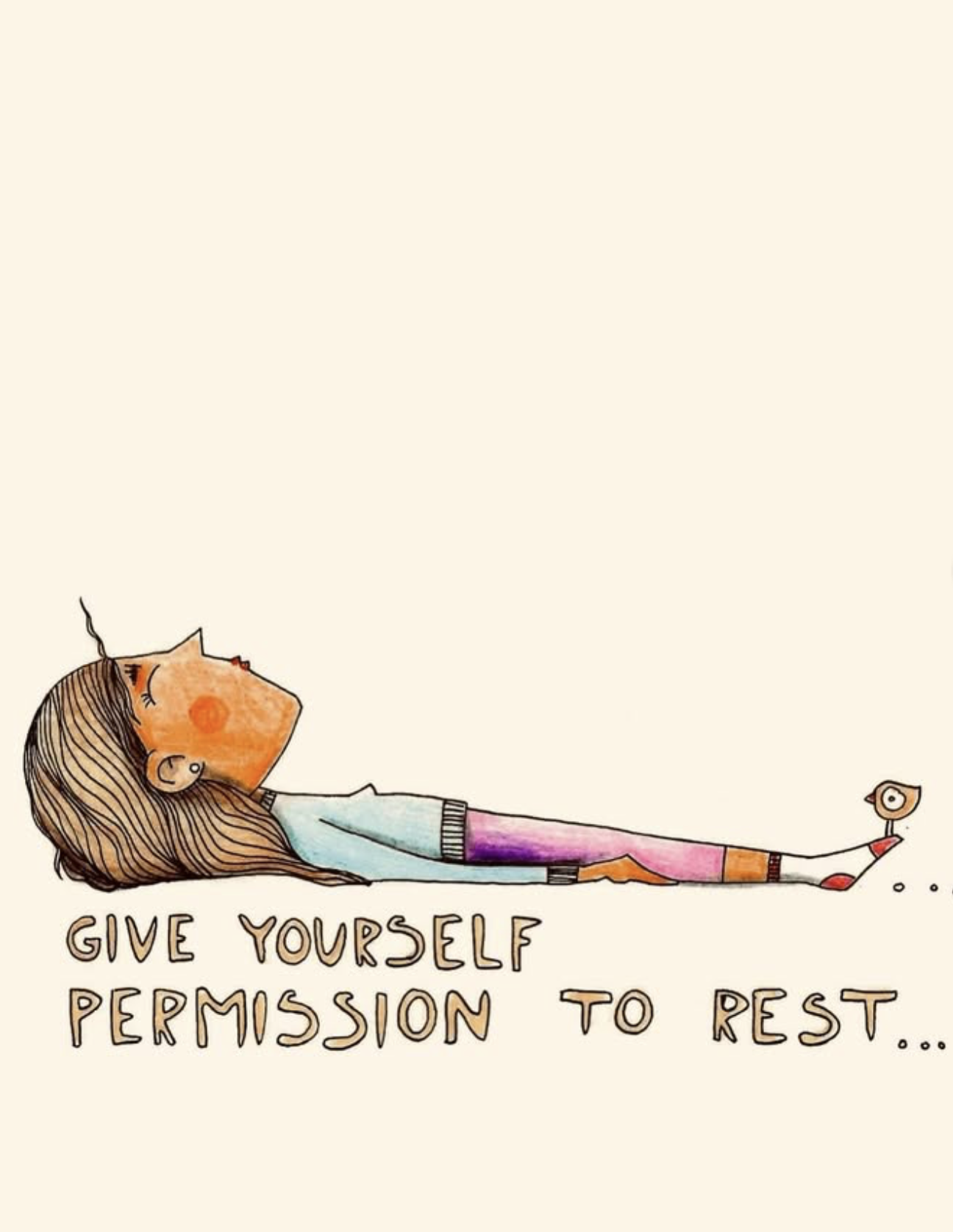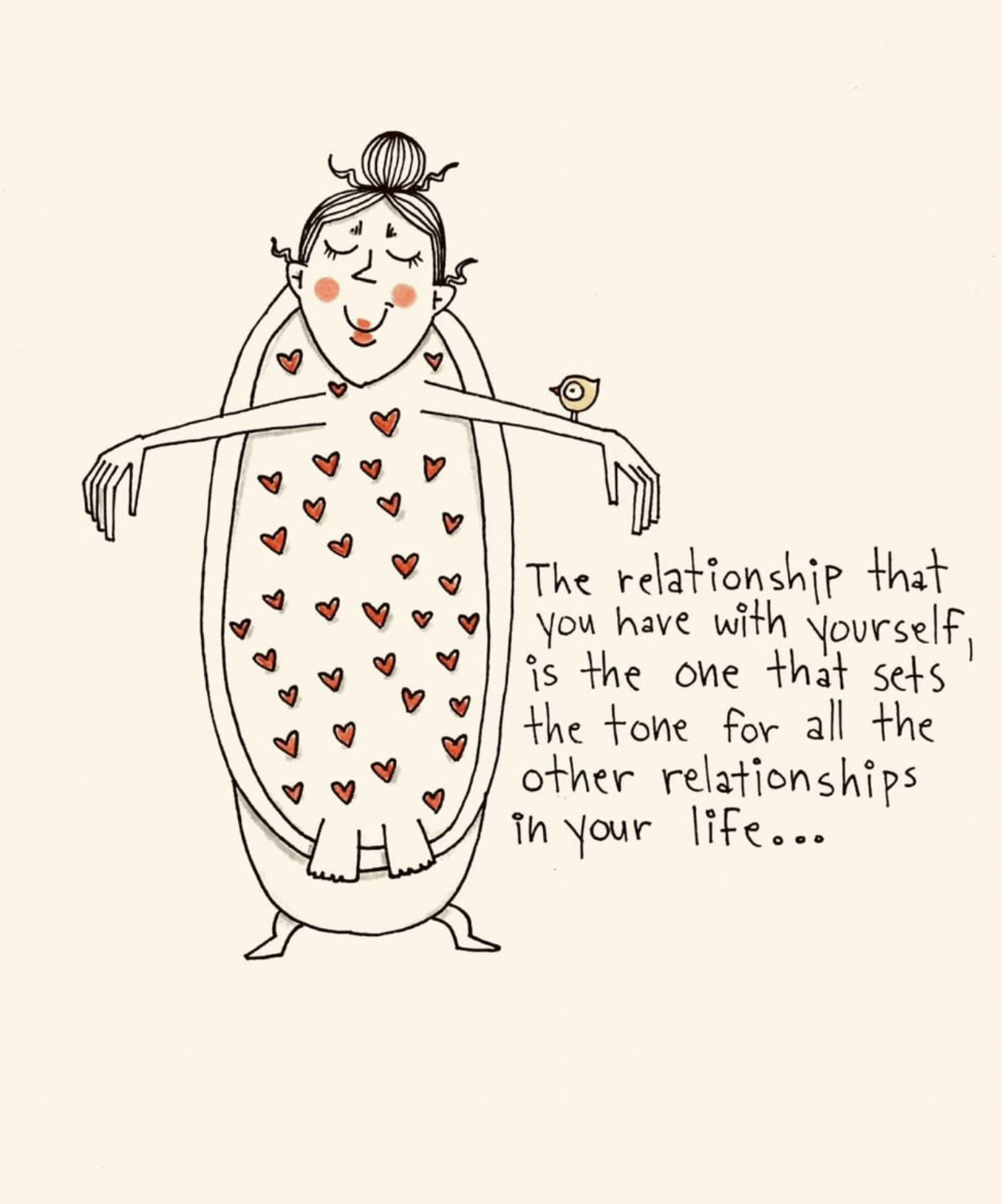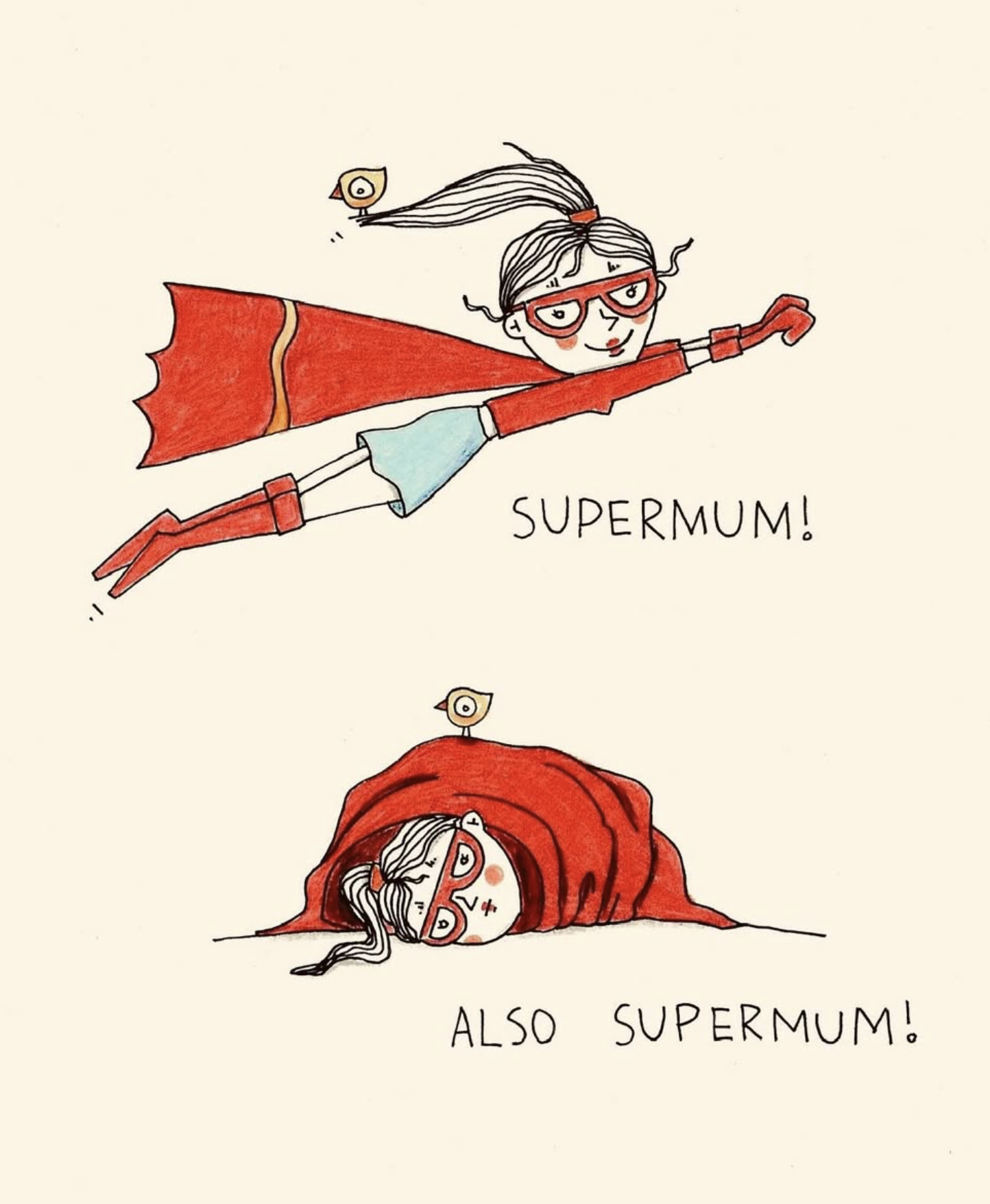How to Break Up with Hustle Culture: A Therapist’s Guide to Burnout Recovery
Informed by Acceptance & Commitment Therapy (ACT)
Illustration By: @ve_kiss_klech
Why Hustle Culture Isn't Worth Your Energy Anymore
Let’s be honest, hustle culture promised purpose but delivered exhaustion. It told us our worth was measured in how much we do, how many boxes we tick, how available we are. But behind the mask of ambition lies a truth many of us are waking up to:
burnout is not a badge of honour.
If you’ve ever felt like slowing down isn’t an option, whether you're navigating work, family life, creative projects, or simply your own expectations — this guide is for you.
As a therapist specialising in anxiety, grief, and identity work, I’ve seen how hustle culture chips away at nervous system regulation, self-trust, and connection. It perpetuates chronic stress responses, keeping many of us in a constant state of hyperarousal or collapse.
Acceptance and Commitment Therapy (ACT) offers a powerful framework to interrupt this cycle and gently realign with a more intentional, fulfilling way of living. This guide walks you through ACT’s six core principles, each one a stepping stone toward freedom from hustle.
1. Acceptance: Making Space for What’s Real
Hustle culture says: Push past discomfort. ACT says: Pause. Notice. Let yourself feel.
Acceptance is not passive. It’s an active choice to stop avoiding difficult emotions: anxiety, guilt, fatigue, and instead make space for them with kindness. When we chronically override our emotions in service of productivity, our nervous system stays in survival mode.
Clinical research in ACT shows that experiential avoidance (the attempt to suppress or escape difficult emotions) is one of the strongest predictors of psychological distress.
Try this: When you're overwhelmed, instead of pushing through, take a breath and name what’s there: “I notice I’m feeling pressure right now.” This shifts you from reaction to awareness, the first step toward healing and building a more intentional, values-aligned life.
2. Cognitive Defusion: You Are Not Your Thoughts
Hustle culture says: You should be doing more. ACT says: Thoughts are not facts.
Cognitive defusion is about creating distance between you and your thoughts. Instead of getting hooked by the inner critic — “I’m lazy,” “I’m behind,” “I need to catch up”, you learn to observe these stories without letting them drive your behaviour.
This is essential for reducing perfectionism and high-functioning anxiety. Hustle culture thrives on fused thinking; where self-worth becomes enmeshed with performance.
Try this: Add the phrase “I’m noticing I’m having the thought that…” before a critical belief. It interrupts the pattern and helps you regain perspective.
Illustration By: @ve_kiss_klech
3. Being Present: Reclaiming Your Attention
Hustle culture says: Multitask. Stay productive. ACT says: Come back to now.
In a world that celebrates doing, presence is a radical act. The present moment is the only place where real connection, rest, and joy live, yet hustle culture pulls us into constant future-orientated thinking. For those with anxiety, this often looks like anticipatory worry and nervous system dysregulation.
Mindfulness, a key practice in ACT, has been shown to reduce cortisol levels and improve emotion regulation. It helps you notice internal cues, like tension, shallow breath, or racing thoughts — before they spiral.
Try this: Anchor yourself in the present by noticing your senses. What can you see, hear, feel, or smell right now? This helps shift from autopilot to awareness.
4. Self-as-Context: You Are Not Just What You Do
Hustle culture says: Your identity is your role. ACT says: You are the observer of your experience, not defined by it.
Self-as-Context is about cultivating a steady sense of self that isn’t tied to the content of your thoughts, feelings, or life circumstances. It’s recognising that while roles, labels, and emotions may change, there’s a deeper you that remains constant. You are not your job title, your to-do list, or even your productivity. You are the awareness that notices all of these things.
For many people caught up in hustle culture, self-worth becomes entangled with output. This can lead to identity fusion, where being 'busy' or 'useful' feels like the only way to feel valuable. But self-as-context helps create a sense of spaciousness: you can observe these experiences without being consumed by them.
From a clinical perspective, this concept is linked to psychological flexibility; the ability to adapt to life’s challenges without losing touch with who you are beyond those challenges.
Try this: When you notice yourself getting caught up in labels or roles — like 'I have to be the perfect employee, parent, or partner, pause for a moment and remind yourself: 'I can step back and see the bigger picture.' Imagine zooming out from your thoughts as if you’re looking at them from the outside. This helps create distance from the pressure and gives your mind room to reset.
Illustration By: @anikabull_therapy
5. Values: Aligning with What Actually Matters
Hustle culture says: Be everything to everyone. ACT says: Clarify your values and honour them with intention.
Values in ACT refer to the qualities and directions that help us live with purpose and fulfilment. They aren’t about ticking off goals, they’re about staying connected to what matters most to you, especially when life feels overwhelming.
When we lose touch with our values, it’s easy to feel burnt out and disconnected. Over time, this erodes our self-trust and sense of identity. Clarifying your values creates an internal compass, offering clarity when external demands feel loud and confusing.
In therapy, I often guide clients to reconnect with values like freedom, creativity, connection, growth, or rest. These anchors can support you in setting boundaries, making intentional choices, and feeling more at ease within yourself. Living by your values helps protect against burnout by keeping your actions in line with your deeper needs, rather than external pressures.
Try this: Identify three to five values that feel authentic to you right now. Then, write down one small action that would honour each value today. It could be as simple as sending a thoughtful message, resting, allowing yourself to slow down, or choosing to prioritise what feels meaningful over what feels urgent.
6. Committed Action: Small, Sustainable Shifts
Hustle culture says: All or nothing. ACT says: Progress over perfection.
Committed action means taking steps, even tiny ones, that align with your values. This builds a sense of agency and consistency over time. And research shows that even small values-based actions can help reduce symptoms of burnout and depression.
You don’t have to get it all right. You don’t need a perfect morning routine or a five-year plan. What matters is that your actions reflect who you’re becoming, not who hustle culture told you to be.
Try this: Choose one small action each day that supports your wellbeing. Stretch for two minutes. Say no to something draining. Step outside. These actions compound over time and they count.
Illustration By: @ve_kiss_klech
Time to Hang Up the Cape
So go on, join me in chucking the hustle. And while we’re at it, let’s bin the cape too. We’re human, not superheroes. And let’s be honest: slowing down isn’t lazy. It’s strategic. It’s what we do before our nervous system hits the brakes for us.
Breaking up with hustle culture isn’t about opting out of ambition. It’s about choosing a life that’s more sustainable, meaningful, and aligned with your nervous system’s needs.
Let ACT guide you back to yourself, the self that honours rest, goes inward, and acts with intention.
Because your value isn’t in how much you produce. It’s in who you are when you stop performing.
If this resonates and you’d like personalised support, you can learn more about my therapy services [here].
With heart,
Anika x




